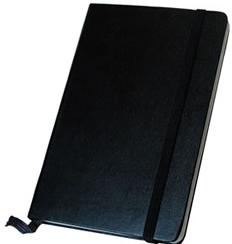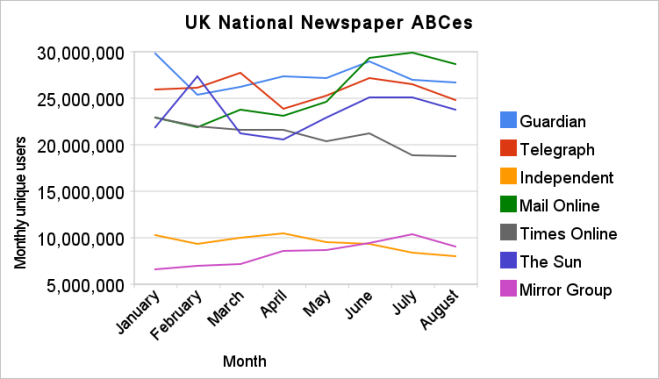 “Get big, get niche or get out” is a hoary old business mantra. For a news media in an increasingly fragmented landscape the middle option seems the obvious one.
“Get big, get niche or get out” is a hoary old business mantra. For a news media in an increasingly fragmented landscape the middle option seems the obvious one.
Niche publications will be able to survive offline and charge on it. Or so conventional wisdom has it.
When we talk of niche we tend to talk in terms of subjects (business, pharmaceuticals, model railways etc) and not objects.
But what if the desired niche was physical? What if there’s an audience out there who crave the aesthetic of the printed newspaper as much as Moleskine owners crave their little black and bound notebooks?
The Moleskine is a useful analogy for two reasons. Firstly, it is very tribal – the owner, likely urban, liberal and creative*, is saying something about themselves. If you feel alienated as a non-owner, a non-member, well you’re supposed to.
Second, the Moleskine should have been made redundant by the PDA and the smartphone – its portability and functionality both superceded by a digital alternative.
It didn’t because people crave the physicality. There are now 10 million Moleskine notebooks in production each year.
Newspapers, too, are both tribal and threatened by a digital alternative. Could a few carve out a niche as highly desirable, daily objects of desire?
(*No surprise then that many in the tribe were horrified when Fox News anchor Glenn Beck, poster-boy of the American right, was spotted with one.)
Related:
– The Future Of Newspapers, It’s In The Bag
–>Follow me on Twitter

 Does The Sun make winners or merely back them? Does it shape public mood or simply reflect it?
Does The Sun make winners or merely back them? Does it shape public mood or simply reflect it? “Get big, get niche or get out” is a hoary old business mantra. For a news media in an increasingly fragmented landscape the middle option seems the obvious one.
“Get big, get niche or get out” is a hoary old business mantra. For a news media in an increasingly fragmented landscape the middle option seems the obvious one. (Hat tip: @
(Hat tip: @ “Ok, can you do some more probing? New York will want to know,” is an odd way to start a story about Roman Polanski’s arrest in Switzerland. The inverted pyramid it is not.
“Ok, can you do some more probing? New York will want to know,” is an odd way to start a story about Roman Polanski’s arrest in Switzerland. The inverted pyramid it is not.
